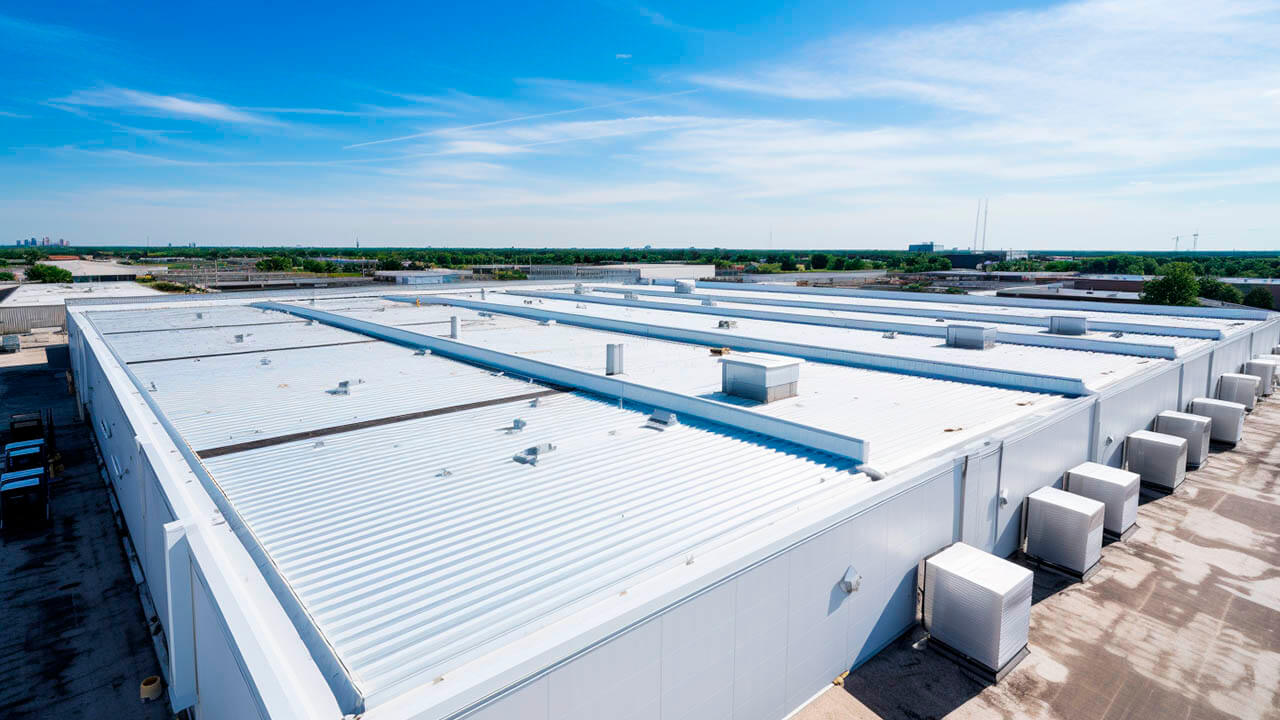A commercial roof is a significant investment, and maintaining it properly can save you from unexpected repair or replacement costs. One way to ensure its longevity is through a regular commercial roof inspection. However, as you plan to get a roof inspection, one question might be looming: How much does it cost to have a commercial roof inspected? You will spend between $200 and $600.
Let’s dive into this topic to equip you with everything you need to know.
What Does a Commercial Roof Inspection Cover?
When hiring a professional for a commercial roof inspection, it’s important to understand what aspects of your roof they will be checking. Below are some key areas that most roof inspectors tend to cover during a comprehensive inspection.
Roofing Materials
Different materials come with different potential issues, so inspecting the roofing materials is vital. Asphalt shingles might have granule loss or be curling or missing. Inspectors look for signs of rusting, panel damage, or seam issues on a metal roof.
A slate tile roof might have broken or missing tiles. Understanding your roofing material and its common issues helps the inspector provide an accurate assessment and recommend appropriate repairs if needed.
Roof Condition
A significant part of the commercial roof inspection is assessing the overall roof condition. Roof inspectors will check for wear and tear, looking for broken or missing materials, any signs of sagging, or damages from storms or other weather conditions. The roof’s condition is a primary indicator of the roof’s life span and whether any immediate repairs or replacements are required.
Roofing Vents and Attic Ventilation
Ventilation is key to the health of your roof. A roof inspector will ensure that your roofing vents are in good condition and not blocked by debris or damage.
Furthermore, they will inspect the attic to ensure it has proper ventilation. Inadequate attic ventilation can lead to many issues, including the buildup of moisture that can cause rot and mold.
Roof Decking
The roof decking, or sheathing, provides a base for your roofing materials and adds an extra layer of protection for your property. A roof inspector will assess the condition of the decking for signs of water damage, rot, or structural issues. Any problem with the roof decking can compromise the roof’s overall integrity and lead to significant problems down the line.
Need for Repairs or Replacement
Finally, roof inspectors will evaluate if your commercial roof requires any immediate repairs to fix current issues or if a roof replacement is needed due to extensive damage or the end of its service life. They will provide recommendations based on their findings, which can help you plan your budget accordingly and ensure your roof maintains its integrity for years.
How Much Does a Roof Inspection Cost?
The average commercial roof inspection cost can range from $200 to $600, but it’s not a one-size-fits-all price. Several factors influence the average roof inspection cost, and expenses can vary significantly based on these factors. The main factors include the following:
Inspection Type
The type of inspection conducted on your commercial roof significantly impacts the cost and duration of the inspection process. The various roof inspection types have unique methods and use different technologies. Below are the different types of inspections:
Physical Roof Inspections
A physical roof inspection is the most traditional type of inspection. Roof inspectors physically walk on the roof, visually inspecting it for any noticeable damage. They will look at every part of the roof, including the materials, flashings, chimneys, and other features.
They will also inspect the gutter system for blockages or damage. This type of inspection is usually less expensive, but it may not uncover hidden issues, particularly those inside the roof structure or underneath the roofing material.
Drone Roof Inspection
Drone roof inspections have gained popularity due to their ability to cover large areas quickly and efficiently. In a drone inspection, a drone equipped with a high-resolution camera is flown over the roof, taking pictures and videos from various angles.
These images can then be analyzed in detail to identify any potential issues with the roof. Although a drone roof inspection costs more than a physical inspection, it provides a more comprehensive overview of the roof’s condition. It can detect issues that might be missed in a physical inspection.
Infrared Roof Inspection
Infrared roof inspection costs more due to the use of high-end technologies. In an infrared inspection, the inspector uses infrared technology to detect heat variations across the roof surface, which can indicate issues like trapped moisture or heat leaks.
These inspections can uncover problems that are not visible to the naked eye, providing valuable insights into the condition of the roof and its underlying structure.
Roof Size
The larger the commercial roof, the higher the roof inspection costs. Most roof inspectors charge based on the square footage of the roof they need to inspect. Therefore, a roof inspection for a small retail store will likely cost less than one for a large warehouse.
Roof Material
The type of roofing material also plays a significant role in the cost of a roof inspection. Certain materials, like asphalt shingles or metal roofing, are relatively straightforward to inspect, while others, like a slate tile roof, can be more challenging and time-consuming, increasing the inspection cost.
System Slope
If your roof has a steep or slightly sloped roof, it may require more time and precautions, resulting in a higher inspection cost. Comparatively, a flat roof inspection typically costs less due to the easy accessibility roof slope.
Your Location
Like many other services, your geographical location can influence the cost of a commercial roof inspection. Depending on local market rates, the availability of local roof inspectors, and local regulations, you might pay more or less for your roof inspection services.
Other Costs and Considerations
While the primary elements influencing the cost of a commercial roof inspection are the type of inspection, roof size, material, and slope, several additional considerations can affect the overall cost. These include roof certification, necessary repairs, accessibility of the roof, and whether the inspector is a member of a recognized body like the National Roofing Contractors Association.
Roof Certification
If you need a roof certification, you should expect an increase in your roof inspection costs. A roof certification is a professional statement from a roofing contractor that the roof is in good condition and has a certain amount of estimated life.
It is often requested by insurance companies or potential buyers of a property. Issuing a roof certification requires a thorough examination, so the inspection cost can go up if you need one.
Repairs
During the inspection, if any minor issues are discovered that can be quickly and easily fixed, most roof inspectors can handle these on the spot, often for an additional fee. However, significant problems that need more extensive repairs or a full roof replacement will dramatically increase the costs.
These are not typically included in the inspection cost, and it is advisable to get detailed estimates before work begins.
Accessibility
If your commercial roof is challenging to access, it may result in additional costs. For instance, if your roof has a steep slope or is high off the ground, the inspector might need special equipment or take extra precautions, increasing the inspection cost.
Additionally, if obstacles, such as trees or structures, restrict access to the roof, additional time and resources may be required, increasing the cost.
Roof Age
Generally, older roofs require more in-depth inspection as they are more likely to damage or wear and tear due to exposure to weather elements. As such, if you have an older roof, you may need a more comprehensive inspection, which can result in higher costs.
Roof inspectors typically consider a roof older if it is nearing or has surpassed its expected service life, depending on the material used.
Reasons You Need a Roof Inspection
A commercial roof inspection isn’t just about spotting problems – it’s also about preventive maintenance, ensuring safety, and extending the life span of your roof. Here are a few compelling reasons why you need a commercial roof inspection:
Spotting Potential Issues Early
A key benefit of a commercial roof inspection is the ability to spot potential issues before they become significant problems. A professional roof inspector can detect signs of damage or wear and tear that you may not notice. By catching these issues early, you can fix them before they lead to major repairs or even a complete roof replacement, saving you money in the long run.
Preventive Maintenance
Regular roof inspections are integral to preventive maintenance for your commercial roof. An inspection can identify areas of your roof that are more worn out or prone to leaks and fix them proactively. Preventative maintenance can greatly extend the life span of your roof and save you from unexpected costs.
Safety Assurance
A damaged roof can be a safety hazard, leading to leaks that can cause slip-and-fall accidents or even structural damage that can result in part of the roof collapsing. Regular inspections ensure that your roof is safe, protecting your employees, customers, and visitors.
Warranty Requirements
Most roofing material manufacturers require regular inspections as part of their warranty conditions. If a problem arises and you haven’t been getting regular inspections, your warranty claim could be denied. Regular inspections ensure that you comply with warranty requirements.
Value Preservation
Your commercial roof is a significant investment. Regular roof inspections help preserve its value by ensuring it is in good condition and by identifying and addressing issues early. This is especially important if you plan to sell or lease your property.
Insurance Claims
In case of damage due to storms or other natural disasters, an updated record of regular roof inspections can expedite insurance claims. Insurers are more likely to approve claims when you demonstrate that you’ve properly cared for your roof.
DIY vs. Professional Work: Which One Saves More on Costs
In the world of commercial roofing, the debate often arises: is it more cost-effective to attempt a do-it-yourself (DIY) approach or hire a professional for tasks like roof inspections and repairs? Let’s break down both options to see which one might save more on costs.
DIY Roof Inspection
Opting for a DIY roof inspection can seem like a cheaper alternative, at least initially. If you have some experience with roofing systems, you may be able to identify visible issues such as missing or damaged shingles, blocked gutters, or broken flashings.
However, a DIY inspection has its drawbacks. Roofing systems are complex; without proper training and experience, you could miss more subtle signs of damage or underlying issues that a professional would catch. This could lead to minor issues escalating into significant problems over time, resulting in costly repairs or even a roof replacement.
Additionally, safety is a major concern. Without the proper equipment and training, inspecting a roof can be dangerous. Falls from roofs can lead to severe injuries and can be life-threatening.
Professional Roof Inspection
On the surface, hiring a professional for a commercial roof inspection might seem more expensive than doing it yourself. However, a professional roof inspector’s value can make it a more cost-effective choice in the long run.
Professional roof inspectors have the training and experience to spot both obvious and less apparent issues. They can identify potential problems that might be missed in a DIY inspection, helping you prevent more significant issues.
A professional inspection also includes a detailed report of the roof’s condition, which can be useful for insurance claims, if necessary, or when planning for future maintenance or budgeting for potential roof repairs or replacement.
In terms of safety, professionals are trained to inspect roofs safely and have the proper equipment to do so. This reduces the risk of accidents and injuries.
Lastly, most professional roof inspections also include a consultation where the inspector will explain their findings and suggest preventive measures or necessary repairs. This professional advice can be invaluable in ensuring the longevity of your roof.
Verdict
In the short term, a DIY approach might seem cheaper. But when you consider the potential cost of missed issues, repairs due to DIY errors, safety risks, and the value of professional advice, hiring a professional for your commercial roof inspection often turns out to be the more cost-effective and safer choice.
Conclusion
The cost of commercial roof inspections can vary widely based on several factors, including the type of inspection, the size of your roof, the roofing material, the slope of your roof, and your location. It can also depend on other considerations like roof certification, necessary repairs, accessibility, and roof age.
While trying to cut costs by doing a DIY roof inspection may be tempting, this approach can often become more expensive in the long run due to the potential for missed issues and the risk of personal injury. A professional roof inspector has the skills and experience to identify potential problems that you might overlook. They can also provide valuable advice and recommendations to ensure that your roof remains in good condition for as long as possible.
Lenox Roofing Solutions is one of the best roofers in South Carolina, offering top-notch roof inspection services. The company has served property owners in Myrtle Beach, North Myrtle Beach, Florence, Georgetown, Horry, Murrells Inlet, Conway, and Surfside Beach for several years. Their focus on customer satisfaction has made them the best in the market.






